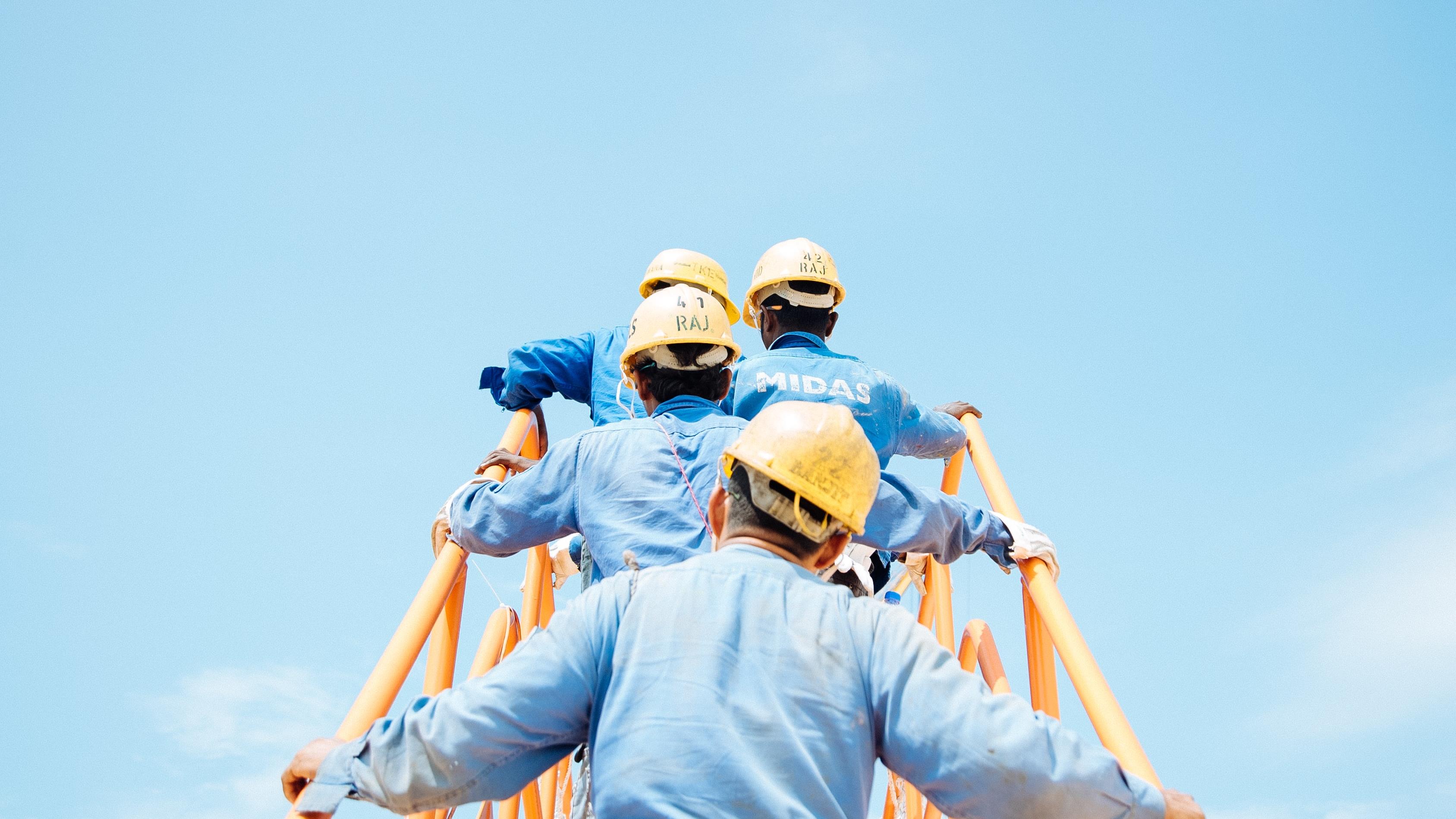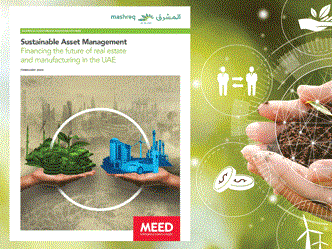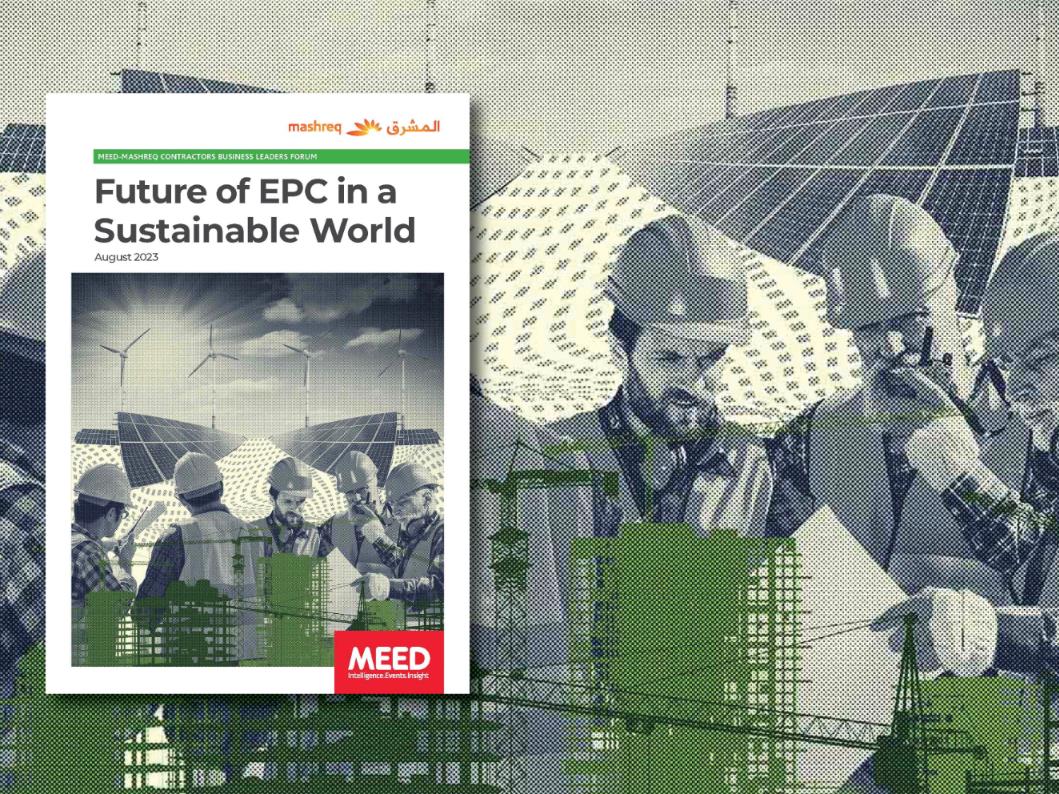

 Q. What were the immediate challenges facing contractors after the Covid-19 outbreak?
Q. What were the immediate challenges facing contractors after the Covid-19 outbreak?
The immediate challenges as a result of Covid-19 came from two fronts. The first was coping with the preventive measures put in place by our headquarters and the government. We spent a considerable amount of time establishing a system that would protect our staff across our office, sites and labour camps.
We started the exercise towards the end of January, when the alert was first issued in China, and so CSCEC Middle East was able to take much earlier action than some of our counterparts. We also applied directives from the government to our operations. All of this reduced our efficiency, no doubt, and was costly to implement. However, safety remains the utmost priority.
Secondly, payment cycles were affected. On one hand, we were incurring extra costs, but on the other hand, our cashflow became narrower and tougher to match with our expenditure.
Q. How have construction contractors benefited from the stimulus packages issued by the UAE government?
As far as CSCEC is concerned, we did not get enough financial support. Maybe our industry is too big and fragmented to extend support to all players uniformly.
The government has made it clear for all government and semi-government bodies to release payments as soon as they can, to support contractors. However, I don't feel payments have been cleared quicker than before. In fact, if anything, they have become slower than before.
However, this affects our subcontractor suppliers as most of them do not have a strong financial capacity to hold out for so long. As contractors, it is our responsibility to keep the tap flowing between the upstream and downstream value chain, which is not an easy job.
Q. What conversations are you having with your clients and subcontractors?
We have received requests from some clients to reduce original contract prices. We have tried to analyse this from different aspects. Our operational costs have certainly risen due to the preventive measures we have instated. For instance, if we had 50-60 workers in one transport bus, we had to half this number, thus increasing the number of trips or vehicles to a single jobsite. At campsites, we had to reduce density of workers, requiring the addition of more camp space to accommodate the thousands of workers.
Based on this, we've tried to explain to our clients that while we're all frustrated and in shock due to Covid-19, nobody has been spared from the impact. As contractors, we have the greater responsibility given the human-dependent nature of the construction sector. We cannot afford to reduce the original contract price and will instead have to share incurred costs, while keeping the client informed of the force majeure situation with plenty of notice about future claims.
We have requested clients to allow us to send official requests to our subcontractor suppliers on their behalf, explaining that in order to survive, we all need to work together. However, the answer is the same. The subcontractor has a number of workers deployed on any site — how can he reduce the costs if work remains the same? Moreover, the contractors have a contractual obligation to their subcontractors. We can't just scrap an agreement — we have to be legally responsible, while also understanding the fact that everybody is suffering.
CSCEC has not reduced any prices. However, we have offered value-engineering propositions to our clients, subject to approvals.
Q. Will the role of technology be stronger going ahead?
CSCEC is using technologies such as artificial intelligence (AI) to facilitate the inspection processes on our project. For example, our Etihad Railway project at the Saudi border is hundreds of kilometres away. During the lockdown, it was difficult to manage inspections and visits, and so, we were able to conduct remote inspections of our office, site and camps using a camera rather than in person. Perhaps slowly, we can adapt this approach even in regular operations.
It will take time. AI needs to produce higher efficiency and lower costs to justify its widespread use in an industry that often prioritises commercial considerations over all else. Certain countries have already started using robots on sites for plastering or other tasks, reducing the need for human resources; this could become commonplace.
Q. What does the outlook for UAE construction look like?
The industry is slowing down, just like all other industries. We are seeing fewer tender invitations — a few government project tenders are being floated. There will certainly be a drop in the number of tenders and awards. However, when the industry will recover is a question mark. Contractors need to remain focused and complete the projects at hand. We may need to rearrange our resources if newer projects are scarce, and we should be prepared for this. Itís still too early to make a judgement about the recovery path of our industry.
Q. How can the government support the industry in the coming months?
 Financial support is critical for any business. Open the tap and pay the contractor and subcontractor on time, as difficult as that might be. We all need to abide by our contractual obligations. Donít pass on the blame. Stick to the contract conditions, thus ensuring the project is delivered on time.
Financial support is critical for any business. Open the tap and pay the contractor and subcontractor on time, as difficult as that might be. We all need to abide by our contractual obligations. Donít pass on the blame. Stick to the contract conditions, thus ensuring the project is delivered on time.
The developers also need to preserve calmness among industry players, as panicking will benefit no one.
This report is produced under the MEED Mashreq Construction Partnership.To learn more about the report or the partnership, log on to: www.meedmashreqindustryinsight.com
You might also like...

Iran launches regional attacks after US and Israel strikes start
28 February 2026

Kuwait receives bids for $400m Subiya utilities plant works
27 February 2026

A partner’s perspective on working with Sharakat
27 February 2026

Egypt’s Obelisk equity move merits attention
27 February 2026
A MEED Subscription...
Subscribe or upgrade your current MEED.com package to support your strategic planning with the MENA region’s best source of business information. Proceed to our online shop below to find out more about the features in each package.
Take advantage of our introductory offers below for new subscribers and purchase your access today! If you are an existing client, please reach out to your account manager.







 Construction faces greater challenges in 2021
Construction faces greater challenges in 2021



